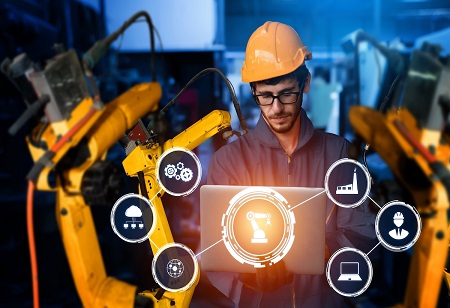Alike automation which was responsible for revolutionizing the manufacturing line of the twentieth century,
Artificial Intelligence is taking manufacturing industry to the next level, which is the
Smart Manufacturing era. Smart manufacturing comprises Internet of Things, sensors, robotics, machine-to-machine communication and the likes.
These technologies in isolation and without the application of intelligence can do nothing for making manufacturing smarter. For instance robots can only perform as much as they are programmed to do; sensors can generate humongous amount of data. What these systems require is an intelligent system which can process the huge volumes of data that is generated in the Smart manufacturing network, the ability to innovate faster, render factories optimized processes, improved business decisions, higher capacity utilization as well as productivity.
Today’s smart Factories are a network of processes comprising information as well as task flows with the way
automation is being leveraged in manufacturing. All these processes should be running in parallel seamlessly without any other tasks or processes interrupting them from evolving as a smart manufacturing unit.
Benefits that Artificial Intelligence is bringing to smart manufacturing
Artificial Intelligence comprises the capabilities of learning systems which are regarded/perceived as intelligent by humans. Artificial Intelligence & ML technologies are the top priorities in the manufacturing industry as they help organizations in altering several business models, discover operational paradigms for supporting those models, & most importantly, monetize information to achieve higher levels of productivity.
Artificial Intelligence works as it accumulates considerable benefits for the manufacturing industry, which include enabling smart production, developing predictive as well as preventative maintenance, providing supply chain optimization, improved safety, product development as well as optimization, facilitating Augmented Reality or Virtual Reality, reducing cost, quality assurance as well as enabling green operations etc.
Artificial Intelligence enablement is most commonly used by manufacturing sectors for increasing the efficiency as well as yield of the
